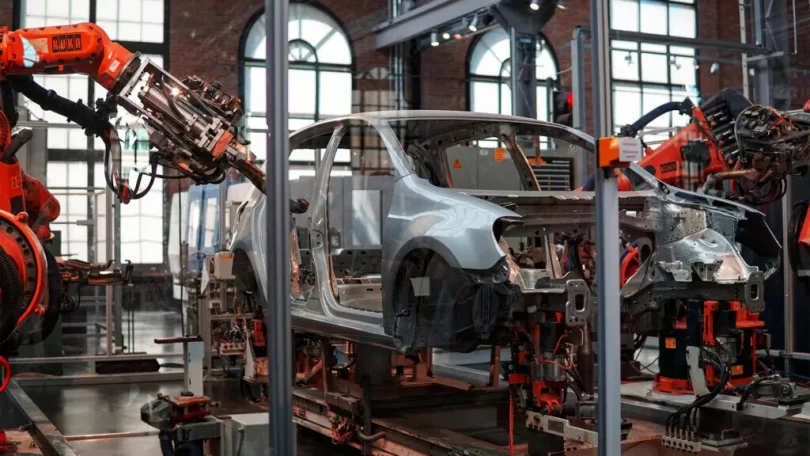The role of plastic fasteners and clips in automotive manufacturing has become increasingly important, with durability and precision playing crucial roles in their effectiveness. As the automotive industry continues to evolve, manufacturers are constantly seeking ways to improve vehicle performance, reduce weight, and enhance fuel efficiency. Plastic fasteners have emerged as a viable alternative to traditional metal components, offering numerous advantages in terms of weight reduction, corrosion resistance, and cost-effectiveness.
These innovative fastening solutions come in various forms, including pins, spacers, connectors, and washers, each designed to meet specific requirements within the vehicle’s structure. Vinyl fasteners, for instance, have gained popularity due to their tensile strength, brittleness, and lower cost compared to metal alternatives. As the industry progresses, the demand for lightweight yet durable components continues to grow, driving the development and adoption of plastic fasteners across various automotive applications.
The shift towards plastic fasteners is not merely a trend but a response to the changing needs of modern vehicle design and manufacturing processes. These components play a vital role in addressing the challenges faced by automotive manufacturers, from improving fuel efficiency to meeting stringent environmental regulations. As we delve deeper into the world of automotive plastic fasteners, we will explore their types, benefits, and the critical factors that make durability and precision essential in their design and application.
Contents
Types and advantages of plastic fasteners and clips
Plastic fasteners and clips offer a versatile solution for various automotive assembly requirements. These include push-in plastic rivets, which differ from plastic screws in their application and installation methods. The choice of fastener type depends on factors such as cost, strength, and specific application requirements. For instance, automotive-grade plastic cable ties produced by some manufacturers are hygroscopic, meaning they absorb moisture, which necessitates proper storage to maintain their quality.
One of the primary advantages of plastic fasteners is their contribution to weight reduction in vehicles. As the automotive industry strives for improved fuel efficiency and performance, the use of lightweight components has become increasingly important. Plastic fasteners offer significant weight savings compared to their metal counterparts, helping manufacturers meet stringent fuel economy standards and reduce overall vehicle weight.
Another key benefit of plastic fasteners is their inherent corrosion resistance. Unlike metal fasteners, which can rust and degrade over time when exposed to moisture and harsh environments, polymer-plastic screws are immune to corrosion. This property makes them ideal for use in areas of the vehicle prone to exposure to corrosive elements, such as the undercarriage or engine compartment.
The cost advantages of plastic fasteners in automotive production are also noteworthy. Their lightweight nature, corrosion resistance, and ease of installation make them preferred components in modern vehicle designs that emphasize fuel efficiency and durability. Additionally, plastic fasteners contribute to improved vehicle aerodynamics, further enhancing fuel efficiency and overall performance.
While plastic fasteners offer numerous benefits, it’s important to note that they are not suitable for all applications. Some heavy-duty components, particularly in engines, still require metal fasteners due to their superior rigidity and strength. However, in many other areas of vehicle construction, plastic fasteners provide an excellent balance of performance, durability, and cost-effectiveness, making them an increasingly popular choice among automotive manufacturers.
Durability and precision: Cornerstones of fastener performance
The durability and precision of plastic fasteners are crucial factors in their performance within automotive applications. These components must withstand a wide range of conditions, including high temperatures, corrosive environments, and constant vibrations. The ability of plastic fasteners to maintain their integrity in the harsh conditions found in engine bays and vehicle exteriors is a testament to their durability and engineering.
Temperature fluctuations pose a significant challenge to fastener performance. Automotive plastic fasteners are designed to withstand these variations while maintaining their structural integrity and functionality. This resilience is essential for ensuring long-term vehicle reliability and safety.
To guarantee the long-term durability of automotive plastic fasteners, manufacturers employ various testing methods. These include assessing material properties, conducting torque-tension testing, and evaluating bearing surface characteristics. By carefully selecting materials and optimizing design parameters, manufacturers can produce fasteners that meet the demanding requirements of modern automotive applications.
Enhancing vehicle performance through innovative fastening solutions
Plastic fasteners play a crucial role in enhancing vehicle performance, particularly in the areas of noise, vibration, and harshness (NVH) reduction. The precision of plastic clips can significantly affect a vehicle’s NVH performance, with components like gaskets supporting the use of plastic pins in assembly to address these issues.
The evolution of plastic fastener designs has greatly improved assembly efficiency in automotive manufacturing. These components now offer cost advantages over steel and composite alternatives while providing corrosion resistance and resilience to harsh operating conditions. The diversification of shapes, sizes, and configurations of plastic fasteners has kept pace with advancements in automotive technology and automated assembly systems.
As manufacturers continue to enhance the strength, reliability, and longevity of their fastener products, the positive impact on vehicle performance becomes increasingly evident. From improving fuel efficiency through weight reduction to enhancing overall vehicle durability, plastic fasteners are proving to be invaluable components in modern automotive design and manufacturing.
Advancements in manufacturing processes and materials
The production of high-precision automotive plastic clips relies on advanced manufacturing processes. Techniques such as stamping, injection molding, extrusion, and forging are employed to produce car clips with consistent dimensions, tolerances, and material properties. To ensure quality, manufacturers implement strict inspection procedures, utilizing automated systems, visual checks, and specialized testing tools like calipers, micrometers, and pull testers.
Material innovations in automotive plastic fasteners continue to push the boundaries of performance. Experts suggest that plastic is the future material for automotive fasteners, as the development of metal alternatives reaches its limits. These new plastic materials offer improved durability and chemical/thermal resistance, allowing them to withstand high temperatures in the engine bay and resist corrosion in exterior applications.
Sustainability and the future of automotive fasteners
As the automotive industry moves towards more sustainable practices, the role of plastic fasteners in end-of-life vehicle recycling processes has gained attention. Fasteners that can be easily removed facilitate the disassembly of end-of-life vehicles, enabling the recovery and reuse of plastic components. This disassembly process is crucial for the refurbishment and reuse of parts, as well as the proper disposal of toxic substances.
Innovations in recyclable materials for automotive plastic fasteners are also making significant strides. Manufacturers are now producing fasteners using recycled polyethylene terephthalate (rPET), recycled polyamide (rPA), and recycled polypropylene (rPP), derived from post-consumer waste such as bottles, carpets, and single-use containers. These developments demonstrate the industry’s commitment to reducing environmental impact and promoting circular economy principles.
The future of automotive fasteners lies in the continued development of more sustainable, durable, and precise components. As the industry evolves, the demand for specialized fastening solutions is likely to grow. Facil’s role in this landscape is significant, as they operate an e-commerce webshop for automotive supply chain customers, aiming to address the challenges of the modern automotive supply chain. By providing excellent service and expertise in the digital era, Facil supports the industry’s transition towards more efficient and sustainable practices in automotive manufacturing and assembly.







